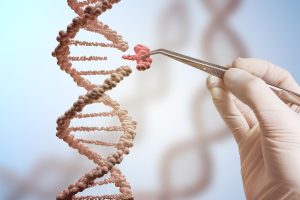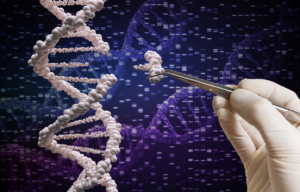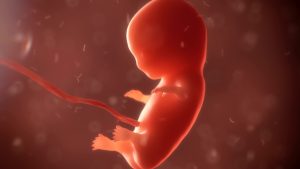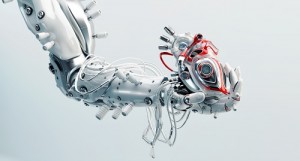Food Safety – The Horse is Out of the Barn . . .
Gene Modification in Produce
Food has been genetically modified since the 1990’s, with tomatoes being the first brought to market. Changes were made within the DNA of the tomatoes causing them to grow faster, larger, and be resistant to pests. Using CRISPR gene editing techniques, we now genetically modify plants and animals using DNA from other species. For example, bacteria DNA is used to modify potatoes, cattle DNA is used to modify salmon, even …
Jul
Update on Illegal and Unethical Research in Gene Editing
With a shock that rippled around the medical research world in 2018, a Chinese researcher unethically and illegally edited the DNA of 3 human embryos, implanted them in their mother’s wombs, who then gave birth. This is referred to as Heritable Human Genome Editing (HHGE) and represents a clear breach of the Belmont Principles of Autonomy (Informed Consent), Beneficence (Benefit outweighs Risk), and Justice (Protection of the Vulnerable). Presentations at the summit included several from …
Apr
CRISPR Causes Mutations that are Passed on to Offspring
It is 2022, and even with the explosion of medical research over the last decade using CRISPR gene editing, the unwanted and off-target mutations caused by the game-changing tool have not been controlled. Furthermore, studies consistently find that these mutations are directly inherited by any offspring produced. Indeed, CRISPR has facilitated great strides in curing single-genome diseases, such as sickle-cell anemia. But these are cases where adults were treated, and embryos/germ cells (eggs and sperm) …
Mar
IVG: Making Babies from Skin Cells
In Vitro Gametogenesis (IVG) involves creating human embryos without the use of eggs or sperm…from adult skin cells. When combined with gene editing (sometimes using DNA from an outside party), this technique will produce and grow “designer babies”, paving the way for any individual to become a parent. IVG has already produced successful outcomes, and fine tuning is being aggressively pursued. Just as in IVF, scores of created embryos are destroyed in the process. Once …
Mar
What is Transhumanism – and why should I care?
NCER Comments – 1-26-2021
- What is Transhumanism?
The prefix Trans means crossing over a boundary; in this case, the boundary of being human.
It’s a philosophy or ideology that aims to control and transform the human species to a higher state using bio technologies, in order to eliminate suffering, disease, aging and death because those are considered mankind’s enemy. This ideology is based on secular humanism- the belief that the tangible world is the only …
Feb
As a genome editing summit opens in Hong Kong, questions abound over China, and why it quietly bowed out.
Due to the generosity of supporters, a representative of NCER was one of only 400 attendees at the Second International Genome Editing Summit in Hong Kong, 11/2018. There, a bombshell report broke that one of the Chinese scientists scheduled to speak at the Summit announced he used the CRISPR gene tool to edit the DNA of twins that were then born in October, hence breaking the international moratorium on clinical Genome Editing in human embryos. …
REVEALED: More than 70 PERCENT of Americans are in favor of gene editing to protect children from deadly diseases
Are you part of the 70% of Americans who are in favor of creating babies who would be protected from diseases? No one would wish illness upon humans, let alone babies, so upon first reflection, this seems to be a compassionate route to take in medicine. However, there are many dire complications to consider: What if unintended, harmful mutations are made to these babies? What if the technology is abused by using it to modify …
Designer babies aren’t futuristic. They’re already here.
It is now common and affordable for adults to learn about their genetic make-up and any inheritable diseases their genes may carry. As a consequence, the use of expensive pre-implantation genetic testing to weed out imperfect embryos for family planning is growing rapidly. This trend risks relegating genetic diseases to poor populations, while also discriminating against imperfect but viable embryos that are created and rejected. NCER rejects this disregard for the unborn even those in …
Same-sex mouse parents give birth via gene editing





